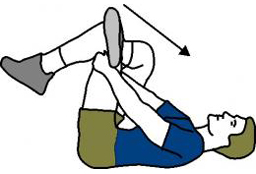Stretching Guide for Figure Skating
Physical therapy in Seattle for Figure Skating
Stretching is an essential part of successful figure skating. A good stretching routine can help to minimize muscle imbalances, prevent injury, and improve your skating endurance and performance. The following stretching program is designed for figure skaters who do not have any current injuries or individual stretching needs. If you have an injury, or a specific mechanical imbalance that may be holding back your skating performance, your Core Physical Therapy physical therapist can design a stretching program more specific for your individual needs.
When is the Best Time to Stretch?
When your are warm and relaxed! For optimum performance you should stretch after you have done a general body warm up of about 5-10 minutes. This can include a combination of off-ice exercise such as light running or cycling, or on-ice quick laps that get your heart rate up. Figure skaters will need to do both dynamic and static stretching. Dynamic muscle stretches (short quick movements) form part of your pre-competition or training warm-up. They are used to prepare your muscles for the rapid contractions experienced during figure skating. Static stretches (long slow holds), on the other hand, are more useful to improve your overall flexibility and are most effective if done after your competition or training session, at the end of your cool down.
Rules for Dynamic Stretching:
- Warm up your body first, then stretch while your muscles are still warm.
- Move through your range of movement, keeping control of the movement with your muscles. Do not allow momentum to control the movement by "flinging" or "throwing" your body parts around.
- You may feel light resistance in your muscles, but you should never feel pain during a stretch.
- Start with slow, low intensity movements, and gradually progress to full-speed movements through range of motion. Complete these motions for several repetitions (10-15 times.)
- Finish with simulated quick figure skating movements such as quick leg swings as if preparing for a jump as well as jumping itself. Repeat for several repetitions (8-10 times.)
Rules for Static Stretching:
- Stretch while your muscles are still warm from skating.
- Slowly take your muscles to the end of their range. You will feel slight resistance in the muscle, but you should never feel pain during a stretch.
- Hold the stretch in a static position. Do not bounce.
- Hold each stretch for 20-30 seconds. Repeat each stretch 3-4 times.
Essential Stretches for Figure Skating:
These muscles are your prime movers for figure skating. You'll need to stretch these muscles each time you train or before a competition. Don't forget to stretch both sides. The stretching program shown below will take about 15-20 minutes to complete.
Dynamic Stretches
Arm Swings

Front Lunges
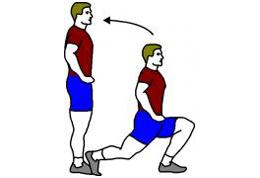
Side Lunges
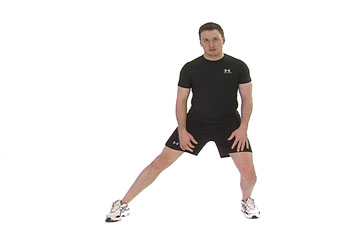
Leg Swings side to side and front to back
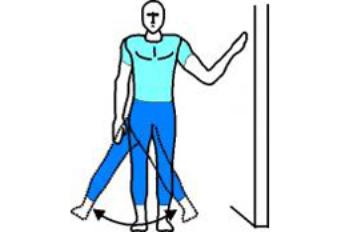
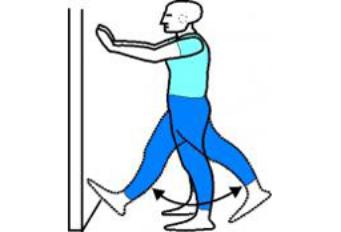
Trunk rotation (quickly)
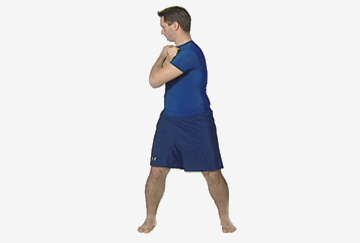
Ankle range of movement

Leg curls
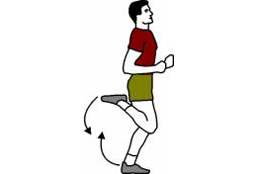
Static Stretches for Figure Skating:
Neck Stretch

Calf Stretch (Gastrocnemius)
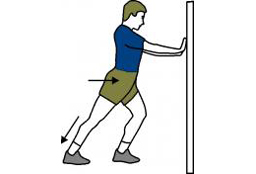
Calf Stretch (Soleus)
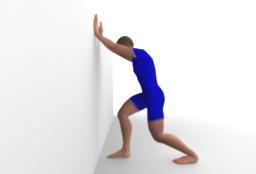
Quadriceps Stretch
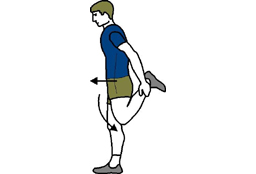
Hamstring Stretch
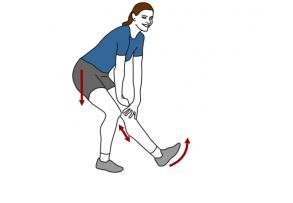
Lower Back Stretch (Extension)
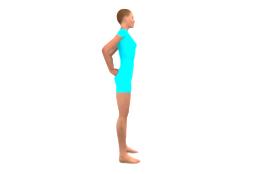
Back Rotation Stretch (slow and hold)

Groin Stretch

ITB Stretch
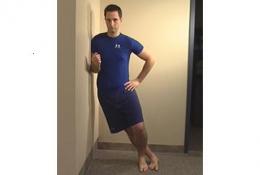
Gluteal Stretch
